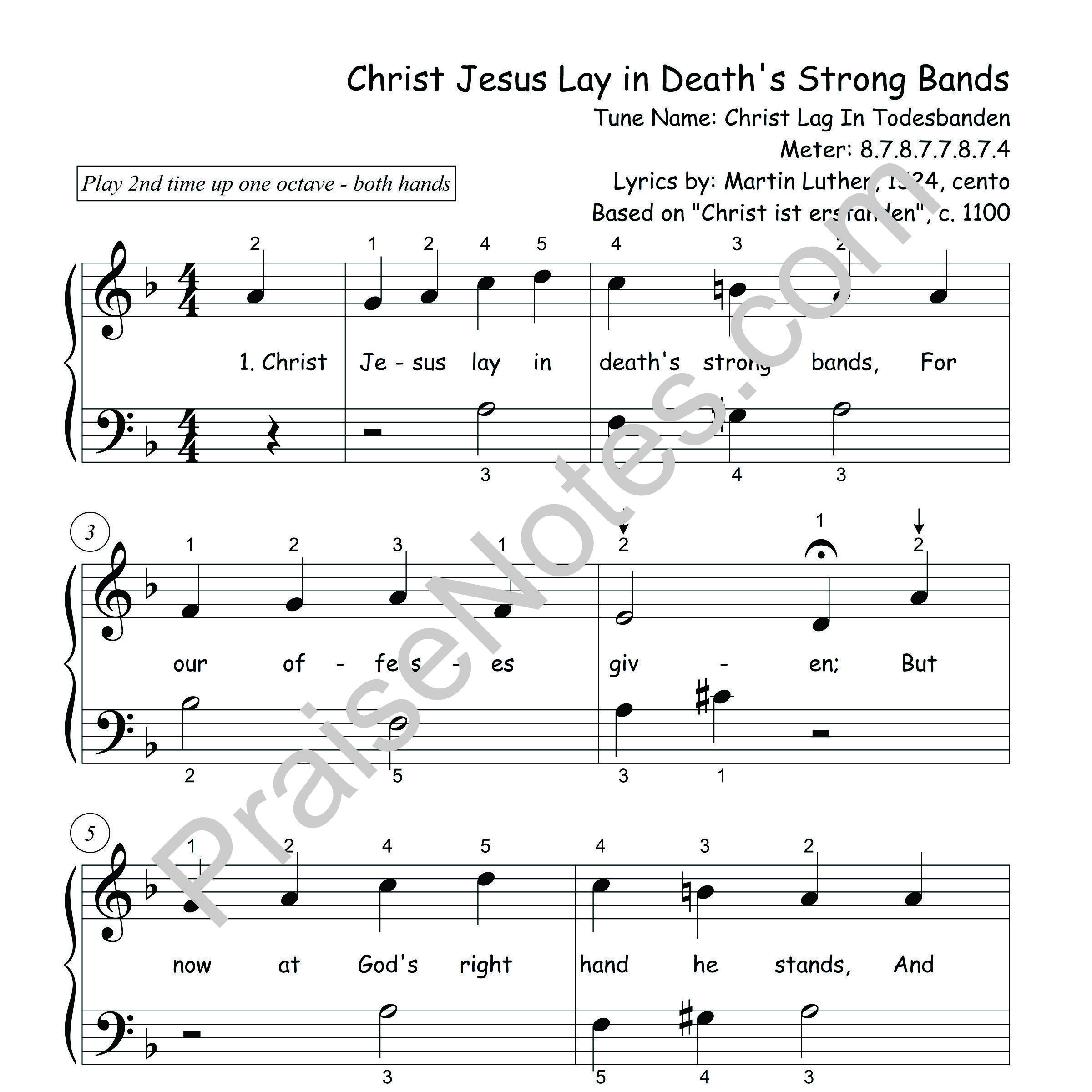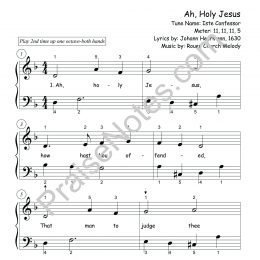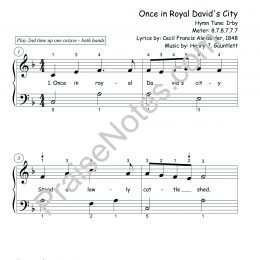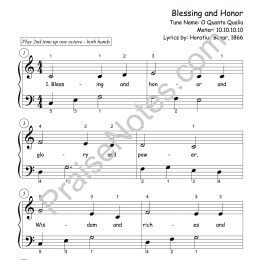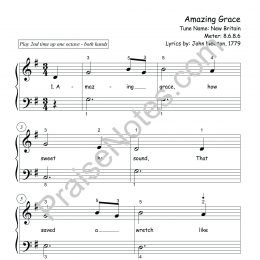Description
Listen to the beginner piano arrangement of Christ Jesus Lay in Death’s Strong Bands.
Luther was a prolific hymnodist (writer of hymns), authoring hymns such as “A Mighty Fortress Is Our God”, based on Psalm 46, and the Easter hymn “Christ Jesus Lay in Death’s Strong Bands,” which was inspired by a medieval Easter hymn from approximately 1100 A.D. called “Christ Is Arisen”.
Stanza one’s opening phrases recall where Christ had been prior to Easter and why: “Christ Jesus lay in death’s strong bands, for our offenses given.” But Luther immediately takes us past the resurrection story to the end results of Jesus’ resurrection: “But now at God’s right hand he stands, and brings us life from heaven.”
The second stanza depicts the “strange” battle that took place between life and death. In the death of Jesus, God, who cannot die, died to atone for the sins of the world and “brought life and immortality to light through the gospel” (2 Timothy 1:10). The end of the stanza closely parallels thoughts from 1 Corinthians 15, the great resurrection chapter of the Bible. Compare Luther’s text to Paul’s words: “Where, O death, is your victory? Where, O death, is your sting? The sting of death is sin, and the power of sin is the law. But thanks be to God! He gives us the victory through our Lord Jesus Christ” (1 Corinthians 15:55-57).
Stanzas three and four make additional biblical allusions. Jesus Christ is called the “Paschal Lamb,” and the connection is made between Good Friday and the Old Testament Passover. Just as the blood of the Passover Lamb spared the Israelites from death in the final plague (Exodus 12:6-7,12-13), so the blood of Jesus spares us from eternal death.
Finally, we are encouraged to “keep the festival,” as Paul also says in 1 Corinthians 5:8. There Paul refers to the Passover festival and the Old Testament practice of removing the yeast from one’s household for the Passover as a reference to keep the “yeast” of sin out of our lives in light of the Lord’s death and resurrection, which has removed sin’s consequences from our future.
From Praise and Proclamation blog
* This hymn arrangement is also available in our books:

